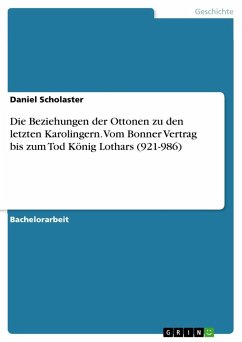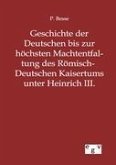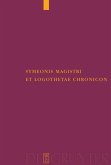In the Chronicle of Thietmar of Merseburg, the experiences and problems of the tenth and early eleventh centuries come together; they are taken up by Thietmar and formed into an epoch. This overall interpretation of the chronicle by the Bishop of Merseburg sees historical knowledge as a consistent product of a dynamic process, as an interplay of cultural and cognitive factors in a particular historical situation. On the basis of this dynamic concept of knowledge, it is possible to present a new interpretation of central episodes of Ottonian historiography and at the same time to demonstrate the future potential of images from the past.
In der Chronik Thietmars von Merseburg fließen die Erfahrungen und Probleme des zehnten und frühen elften Jahrhunderts zusammen, sie werden in ihr aufgegriffen und zu einer Epoche geformt: Die "Zeit der sächsischen Kaiser" - sie ist Thietmars historiographische Schöpfung. Periodisierung, aber auch zeitgenössische Hermeneutik und Kognitionsformen sind konstitutive Faktoren für die Entstehung historiographischer Nachrichten. In dieser Gesamtdeutung der Chronik des Merseburger Bischofs wird historisches Wissen konsequent als Produkt eines dynamischen Prozesses, als Wechselspiel kultureller und kognitiver Faktoren in einer je spezifischen historischen Situation verstanden. Auf der Basis dieses dynamischen Wissensbegriffs gelingt es, zentrale Episoden der ottonischen Geschichtsschreibung neu zu deuten und zugleich das Zukunftspotential von Vergangenheitsbildern aufscheinen zu lassen.
In der Chronik Thietmars von Merseburg fließen die Erfahrungen und Probleme des zehnten und frühen elften Jahrhunderts zusammen, sie werden in ihr aufgegriffen und zu einer Epoche geformt: Die "Zeit der sächsischen Kaiser" - sie ist Thietmars historiographische Schöpfung. Periodisierung, aber auch zeitgenössische Hermeneutik und Kognitionsformen sind konstitutive Faktoren für die Entstehung historiographischer Nachrichten. In dieser Gesamtdeutung der Chronik des Merseburger Bischofs wird historisches Wissen konsequent als Produkt eines dynamischen Prozesses, als Wechselspiel kultureller und kognitiver Faktoren in einer je spezifischen historischen Situation verstanden. Auf der Basis dieses dynamischen Wissensbegriffs gelingt es, zentrale Episoden der ottonischen Geschichtsschreibung neu zu deuten und zugleich das Zukunftspotential von Vergangenheitsbildern aufscheinen zu lassen.
"Ceci montre que l'intérêt de la chronique de l'évêque de Mersebourg pour les médiévistes est encore loin d'être épuisé. Quelles que soient les quelques réserves exprimées ci-dessus, le livre de Kerstin Schulmeyer-Ahl constitue une étape importante dans les études thietmariennes."
Benoît-Michel Tock in: http://www.perspectivia.net
Benoît-Michel Tock in: http://www.perspectivia.net








